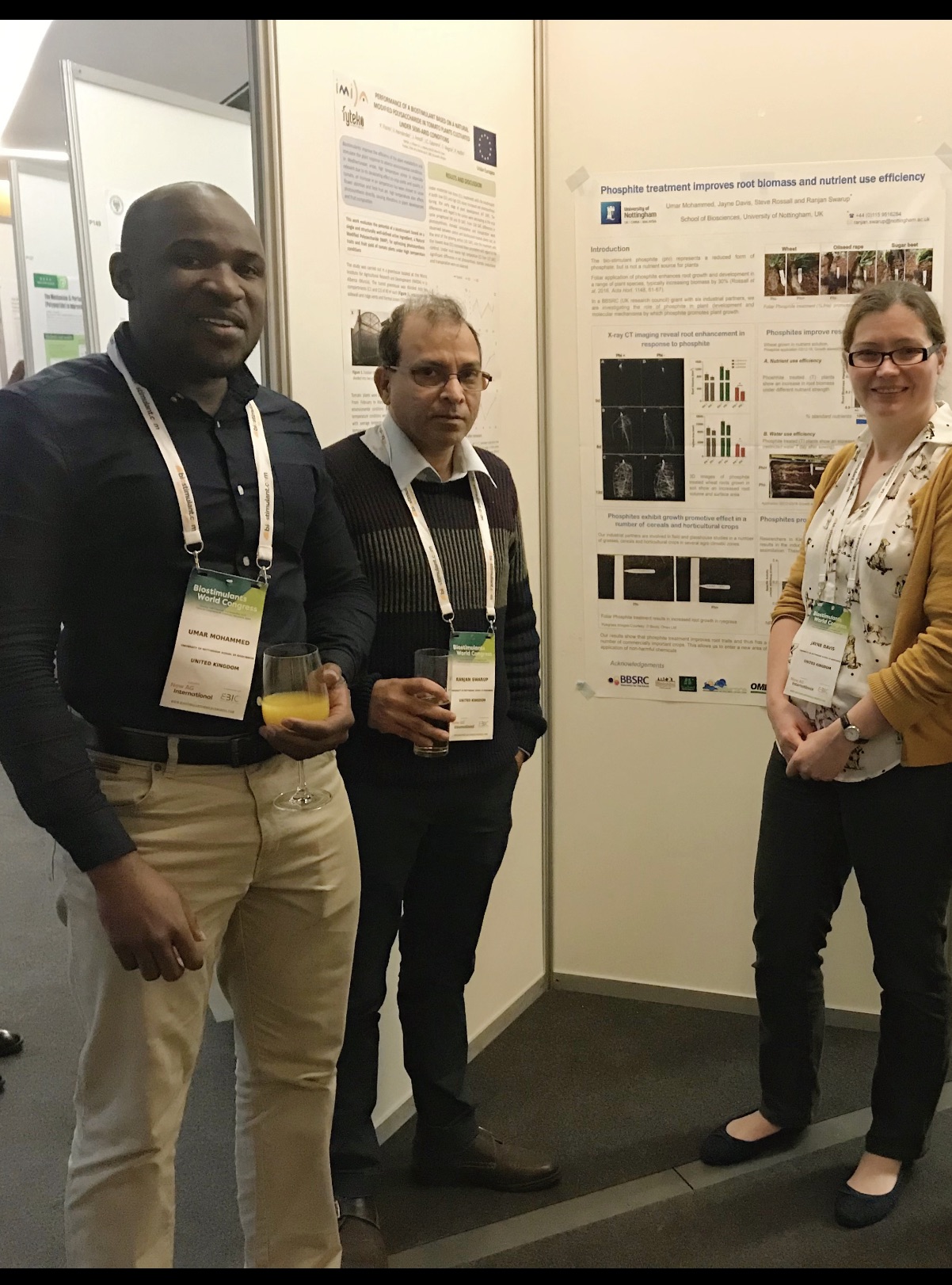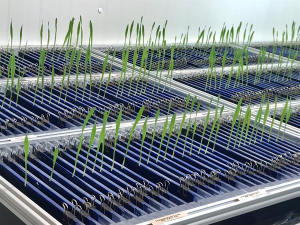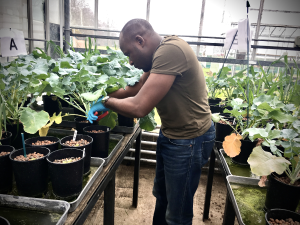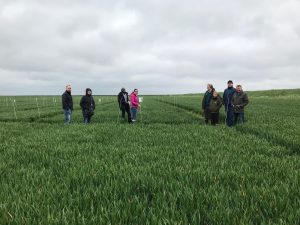
June 2, 2020, by Emma Allaway
Plant science support for registration of phosphites as biostimulants in EU
Supported by a BBSRC LINK grant, Dr Ranjan Swarup and colleagues from School of Biosciences, have been investigating the effect of phosphite on plant growth. The research, which started in June 2017, has used a systematic approach involving a combination of cell biology, plant physiology, biochemistry and X ray imaging techniques, to test the effect of phosphite on two agriculturally important crops – wheat and oilseed rape.
UoN project team – from left Umar Mohammed, Ranjan Swarup and Jayne Davis
What are phosphites?
Phosphites, a reduced form of phosphates, are widely used in agriculture. In addition to phosphite registration as fungicides, several studies have shown phosphites could also improve plant growth. Specifically data from Dr Swarup’s laboratory had shown phosphites enhanced root growth and development in a range of plant species, typically increasing biomass by 30%.
Why a BBSRC LINK project?

Early stage wheat root phenotyping
Dr Swarup teamed up with six agri-businesses who had an excellent track record in research, development and marketing of biostimulants. All the partners had interest in gaining a clear understanding of phosphite’s mode of action, and information about the application requirements in commercially important crops. BBSRC LINK provided a great mechanism to fund the fundamental research required whilst meeting the needs of industrial end-users. It was anticipated the knowledge gained from the BBSRC LINK funded project would support EU product registration.
What were the project outcomes?

Assessing impact of phosphite in oilseed rape in a growth room trial
Results from the project show that, when applied at low doses, phosphites can act as a biostimulant of root growth and offer a low input and cost effective way to improve root architecture. In addition, collaborators at Kiel University Joseph Alexander Verreet found a strong economic case for phosphites as biostimulants, with phosphite treatment improving yield and farm income. The project is making good progress in understanding the molecular basis of biostimulation of root growth, the potential agri-economic impact, and the project consortium recommend registration of phosphites as plant biostimulants in the EU.
Where can I find out more?
Read our white paper, which summarises the key findings of the BBSRC LINK project, here.

UoN project team with industrial partners assessing crops at field trial site in Lincolnshire
Dr Swarup and colleagues from School of Biosciences acknowledge support from the BBSRC (grant BB/P010520/1) and our industrial partners Biolchim (Italy), Headland Amenity (UK), Intracrop (UK), Omex Ltd (UK), Tradecorp International (Spain) and Verdesian Life Sciences (UK).
Contact biosciences-research@nottingham.ac.uk to find out more about research in the School of Biosciences.
No comments yet, fill out a comment to be the first

Leave a Reply